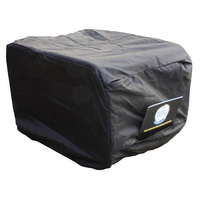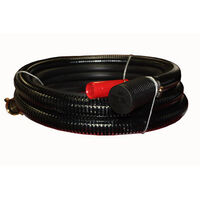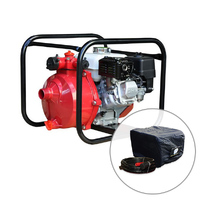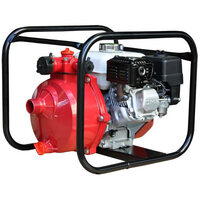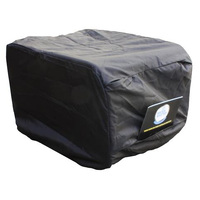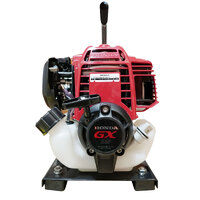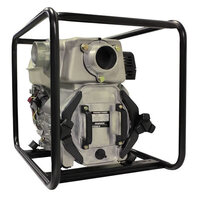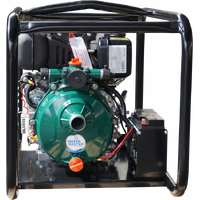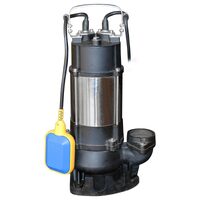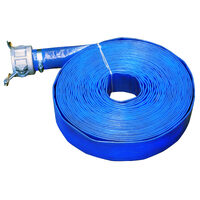Portable Water Pumps

Discharge Size (Inches)
Maximum Head (Meters)
Flow Rate L/Min
Length (mm)
Height (mm)
Width (mm)
Watt hours (Wh)
Brand
Product Category
Filter By Price Range
- $1,000 or below
- $1,000 to $2,000
- $2,000 to $3,000
- $3,000 to $4,000
- $4,000 to $5,000
- $5,000 or above
Price
Product Category
-
- Water Pumps
- Portable Power Stations
- Portable Concrete Vibrators
- Drive Units
- Accessories
Brand
-
- Water Master
- Hyundai
- Ecoflow
- Cromtech
- Crommelins
Watt hours (Wh)
-
- 1536
Width (mm)
-
- 500
Height (mm)
-
- 550
Flow Rate L/Min
-
- 2000
- 1800
- 1420
- 1400
- 1300
- 1000
- 933
- 900
- 833
- 730
- 640
- 610
- 570
- 420
- 390
- 360
- 300
- 250
- 233
- 200
- 130
Length (mm)
-
- 500
Maximum Head (Meters)
-
- 90
- 75
- 74.5
- 60
- 38
- 33
- 32
- 29
- 28
- 25
- 23
- 10.5
- 8.5
- 7
- 30
Discharge Size (Inches)
-
- 4
- 3
- 2
- 1.9
- 1.5
- 1
Filter By Brand
Filter By Stock
Best Sellers
Portable Water Pumps
Discharge Size (Inches)
Maximum Head (Meters)
Flow Rate L/Min
Length (mm)
Height (mm)
Width (mm)
Watt hours (Wh)
Brand
Product Category
Price
Product Category
-
- Water Pumps
- Portable Power Stations
- Portable Concrete Vibrators
- Drive Units
- Accessories
Brand
-
- Water Master
- Hyundai
- Ecoflow
- Cromtech
- Crommelins
Watt hours (Wh)
-
- 1536
Width (mm)
-
- 500
Height (mm)
-
- 550
Flow Rate L/Min
-
- 2000
- 1800
- 1420
- 1400
- 1300
- 1000
- 933
- 900
- 833
- 730
- 640
- 610
- 570
- 420
- 390
- 360
- 300
- 250
- 233
- 200
- 130
Length (mm)
-
- 500
Maximum Head (Meters)
-
- 90
- 75
- 74.5
- 60
- 38
- 33
- 32
- 29
- 28
- 25
- 23
- 10.5
- 8.5
- 7
- 30
Discharge Size (Inches)
-
- 4
- 3
- 2
- 1.9
- 1.5
- 1
Filter By Brand
Filter By Stock
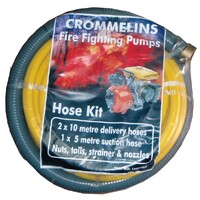
Crommelins Fire Fighting Hose Kit for 1.5" Pump, Delivery & Suction Hoses with fittings, 1
$299 RRP: $322 Save: $23
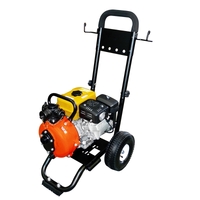
Crommelins Robin Fire Fighting 1.5" Water Pump, 6hp, with trolley, 2 Year + 3 Year Engine
$1,739 RRP: $1,845 Save: $106
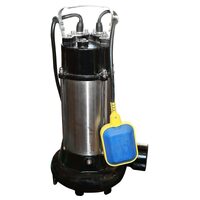
Cromtech 1100w Submersible Pump w/ Chopper Blade, 1 Year Warranty
$395 RRP: $412 Save: $17
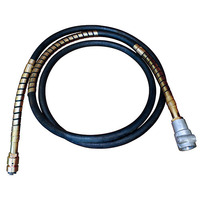
Crommelins 6m Extension Shaft to suit Submersible Flex Drive pumps, 1 Year Warranty
$1,069 RRP: $1,116 Save: $47
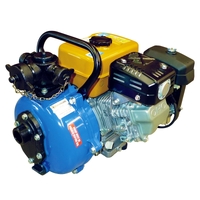
Crommelins Robin Fire Fighting 1.5" Water Pump with Twin Impeller, 7hp, 2 Year + 3 Year En
$1,529 RRP: $1,630 Save: $101
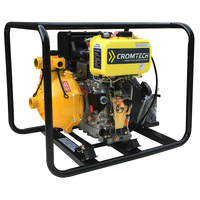
Cromtech Fire Fighting 1.5" Diesel Water Pump with Twin Impeller, 5.3hp, 1 Year Warranty
$1,729 RRP: $1,846 Save: $117
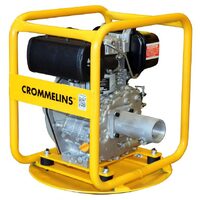
Crommelins Yanmar Diesel Drive Unit 4.7hp, 2 Year + 3 Year Engine Warranty
$3,885 RRP: $4,161 Save: $276
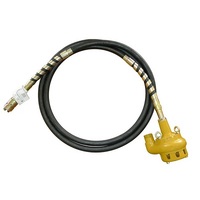
2" Crommelins Aluminium Submersible Flexible Pump, 1 Year Warranty
$1,229 RRP: $1,299 Save: $70
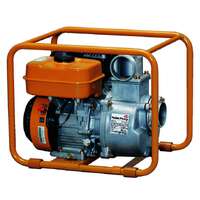
Crommelins Robin 3" Petrol Water Transfer Pump, 2 Year Warranty
$1,249 RRP: $1,334 Save: $85
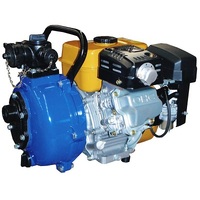
Crommelins Robin Fire Fighting 1.5" Water Pump with Twin Impeller, 6hp, 2 Year + 3 Year En
$1,439 RRP: $1,527 Save: $88
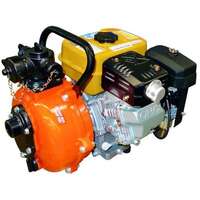
Crommelins Robin Fire Fighting 1.5" Water Pump, 6hp, 2 Year + 3 Year Engine Warranty
$1,089 RRP: $1,160 Save: $71
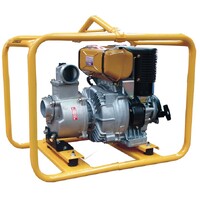
Crommelins Yanmar 4" Diesel Water Transfer Pump, 2 Year Warranty
$6,899 RRP: $7,313 Save: $414
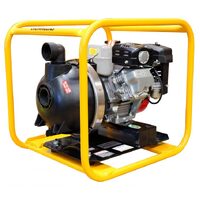
Crommelins Honda 2" Chemical Waste Pump inc Viton seals, 2 Year + 3 Year Engine Warranty
$1,399 RRP: $1,497 Save: $98
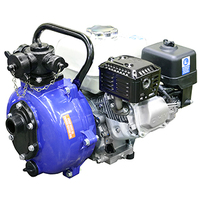
Crommelins Honda Fire Fighting 1.5" Petrol Water Pump with Twin Impeller, 5.5hp, 2 Year Wa
$1,449 RRP: $1,550 Save: $101
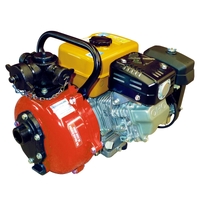
Crommelins Robin Fire Fighting 1.5" Water Pump, 7hp, 2 Year + 3 Year Engine Warranty
$1,279 RRP: $1,367 Save: $88
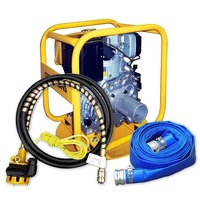
Crommelins Diesel Yanmar Drive Unit & 2" Submersible Pump, 5.5hp, 2 Year Warranty
$5,299 RRP: $5,680 Save: $381
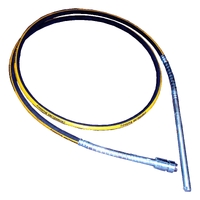
Crommelins Flexshaft Concrete Vibrator 28mm x 6m, 1 Year Warranty
$1,079 RRP: $1,150 Save: $71

Crommelins Flexshaft Concrete Vibrator 38mm x 6m, 1 Year Warranty
$1,099 RRP: $1,168 Save: $69
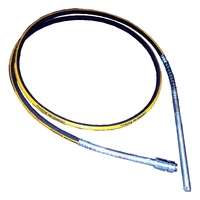
Crommelins Flexshaft Concrete Vibrator 38mm x 9m, 1 Year Warranty
$1,299 RRP: $1,386 Save: $87
Best Sellers From This Category:

Crommelins Fire Fighting Hose Kit for 1.5" Pump, Delivery & Suction Hoses with fittings, 1
$299 RRP: $322 Save: $23

Crommelins Robin Fire Fighting 1.5" Water Pump, 6hp, with trolley, 2 Year + 3 Year Engine
$1,739 RRP: $1,845 Save: $106

Cromtech 1100w Submersible Pump w/ Chopper Blade, 1 Year Warranty
$395 RRP: $412 Save: $17
Portable Water Pumps And Water Pump Generators
At My Generator, we proudly offer a wide range of portable water pumps and water pump generators to suit various applications. Designed for both industrial and residential needs, portable water pumps are essential tools for efficiently moving water from one location to another. These pumps are versatile, durable, and built for tasks like water transfer, firefighting, irrigation, and even handling chemical solutions.
Product Range Overview
We stock an extensive selection of portable water pumps to cater to diverse requirements. Our product range includes:
- Water Transfer Pumps: Ideal for general water movement, perfect for transferring water from tanks, dams, or pools.
- High-Pressure Fire Fighting Pumps: Built to deliver powerful water pressure, ideal for firefighting and irrigation.
- Trash Pumps: Engineered for handling debris-laden water, suitable for construction and agricultural use.
- Submersible Pumps: Perfect for pumping water from flooded areas or wells.
- Chemical Pumps: Designed to safely handle corrosive or hazardous liquids.
- Drive Units: Used for powering various pumping equipment for specific applications.
We are proud to stock trusted brands such as Water Master, Crommelins, and Cromtech, ensuring high-quality performance and reliability. Our range includes pumps with varying horsepower to match your needs, including 4.7hp, 4.8hp, 5.3hp, 5.5hp, and 6hp models.
Why Choose My Generator?
At My Generator, we are committed to being Australia’s premier online destination for portable water pumps and water pump generators. Our expert team, based on the Gold Coast, is here to help you find the right pump for your specific application. Call us on 1300 400 122 to discuss your needs or explore our extensive online store today!
Portable Water Pumps FAQs:
-
1. Do the Water Master Pumps have screw-in (thread) fittings or camlock fittings?
All the Water Master range are screw fittings (standard BSP Thread). You can get an additional separate fitting which allows camlock coupling connection.
-
2. Can you transfer saltwater through a standard Transfer pump?
Hi, a standard transfer pump is not designed to transfer salt water. We are aware of people that do use standard transfer pumps to move salt water, but if they are not flushed thoroughly with freshwater after use (which often they are not), then the seals will be damaged and corrosion is likely to occur. This damage would not be covered under warranty.
You would need to look at a Chemical Pump which is built with stainless steel heads, fasteners and shafts, along with viton seals. These pumps are specifically designed for pumping waste water, chemicals, sea water, fertiliser and other caustic liquids.
-
3. When talking about the size of the pump, does that refer to the diameter of the inlet or the outlet?
In our range of pumps, the inlet and outlet size of the pump is the same, with the exception of the Fire Fighting pump models. These high pressure Fire Fighting pump models will have one inlet and one transfer outlet the same size which classifies the size of the pump, then most Fire Fighting Pump models will also have two additional outlets which are slightly smaller and are designed for the high pressure discharge.
